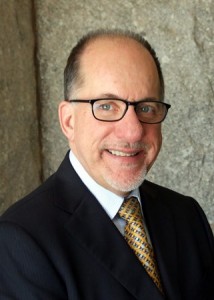By Dennis M. Dimitri, M.D.

Since the days of the Greek physician Hippocrates more than 2,000 years ago, the physician-patient relationship has been regarded as a key to good health care.
A good relationship with a primary care physician offers a patient confidence in the quality of care received, as well as continuity of care and coordinated care with other parts of the health care system.
That's why choosing a primary care physician is one of the most important medical decisions a patient can make.
Patients should consider many factors when choosing their physician. The age and gender of the physician, office hours and location, insurance participation, hospital affiliation, and the physician's office staff, are all important factors to consider. But here are three to put at the top of the list.
First, make sure you'se comfortable with your physician, that you feel you can develop the mutual trust, respect, and openness that will make the relationship work.? Second, focus on communication: does your physician listen to your questions and concerns and respond with adequate answers? Finally, decide what kind of physician-patient relationship you want: Do you want your physician to direct decisions for you, or do you prefer to take a more active role in your health care decision making?
No one physician is perfect for everyone, so it's important to find a person who is right for you. Start by asking family and friends and others whom you trust for advice, and realize that it may take some time to find out if the match is a good one. The relationship between a patient and his or her physician is one that develops over time, and sometimes, for various reasons, the match may not work for you. If you think the relationship is no longer working and you'se not getting what you need, let your feelings be known. Discuss it with the doctor. If it still doesn's work, it's okay to want to make a change.
Physicians recognize that today's physician-patient relationship is changing. Not that many years ago, the primary model was a paternalistic one: the doctor knew best, told patients what they should do, and patients asked few questions.
Today many physicians and their patients have moved from a model where the patient was expected to follow doctor's orders, to one where there's shared decision-making, where physicians work with their motivated patients, and where patients are taking a more active role in their care.
Adding to the changing nature of the relationship are new models of health care delivery, such as the patient-centered medical home and accountable care organization (ACO).
The patient-centered medical home isn's a geographical location; it's really a concept of how care is delivered. With this model, a patient can expect care through a team approach ??led and coordinated by a primary care physician. It fits within the larger concept of an ACO, where patients will find the full range of care they may need, from primary care physicians to medical and surgical specialists to hospital care.
Medical homes and ACOs are designed to help improve the quality of care, something that should enhance the physician-patient relationship. Patients will know that the physician is working on their behalf, to improve the care they are receiving. This can lead to better care for patients and better health for our community, while continuing to support a physician- patient relationship in a way that's best for the patient.
From a physician's perspective, the importance of the physician-patient relationship has stood the test of time. Since the days of Hippocrates, it has always been regarded as sacrosanct, as a critical element in getting the care a patient needs. That remains true today. Even with all the changes now occurring in medicine, this relationship remains a key to good health care.
For information on choosing a doctor, visit the Massachusetts Medical Society at www.massmed.org/choosemd. For a video discussion about the physician-patient relationship, click www.physicianfocus.org/physiciansandpatients.
Dennis M. Dimitri, M.D., a board-certified family physician, is Vice President of the Massachusetts Medical Society and Clinical Associate Professor and Vice Chair of the Department of Family Medicine and Community Health at UMass Memorial Medical Center and UMass Medical School in Worcester.? Physician Focus is a public service of the Massachusetts Medical Society. Readers should use their own judgment when seeking medical care and consult with their physician for treatment. Send comments to [email protected]














